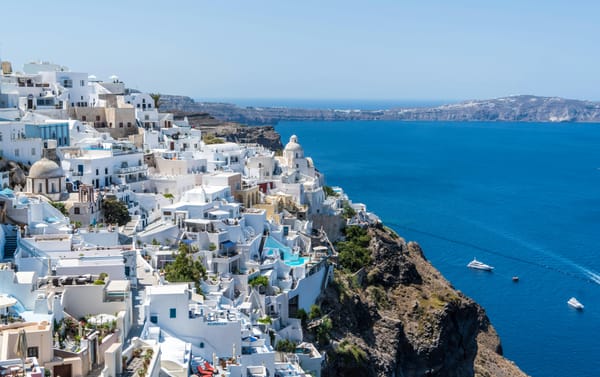Wednesday☕️

Economics & Markets:
- Yesterday’s U.S. stock market:
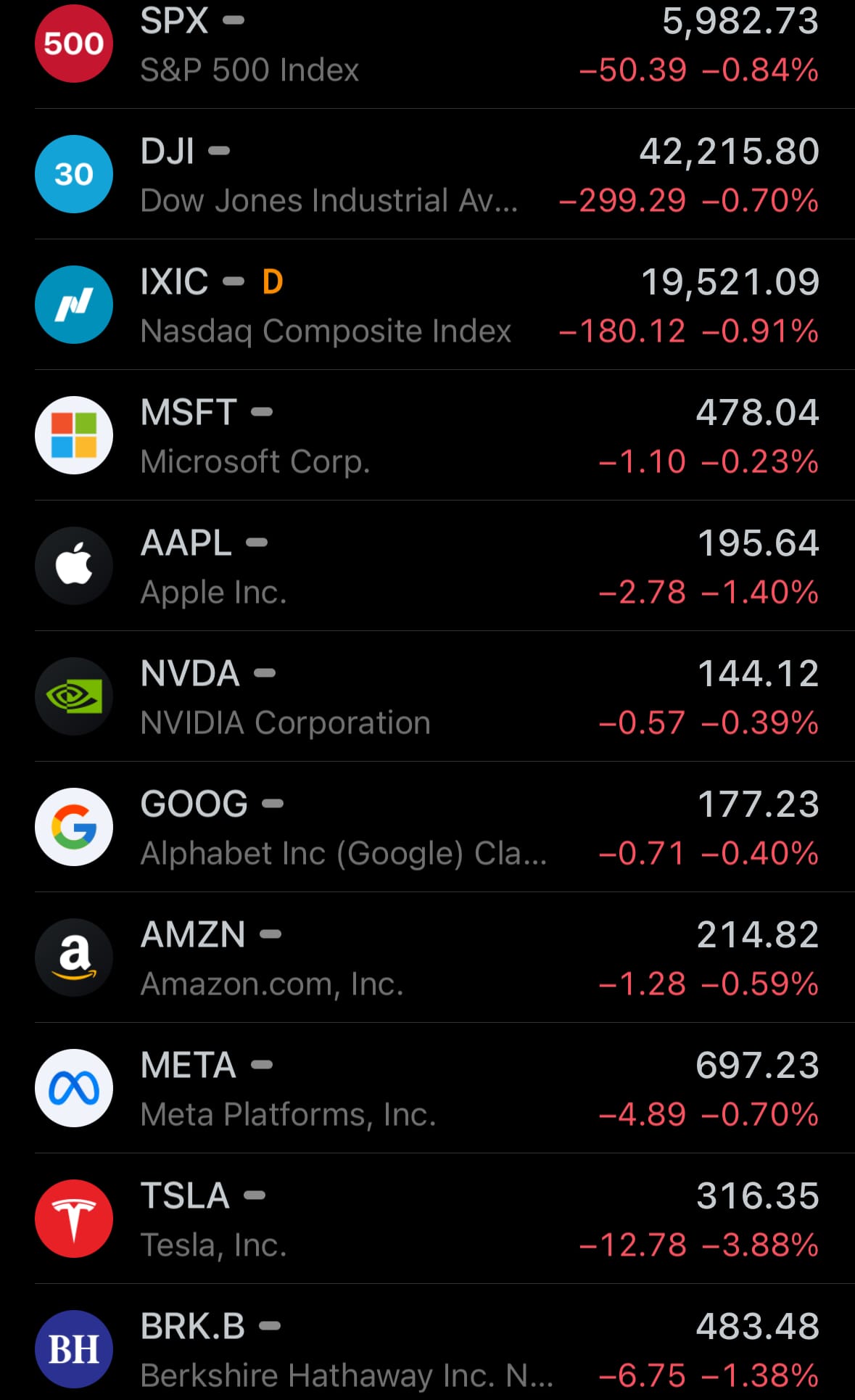
- Yesterday’s commodity market:

- Yesterday’s crypto market:
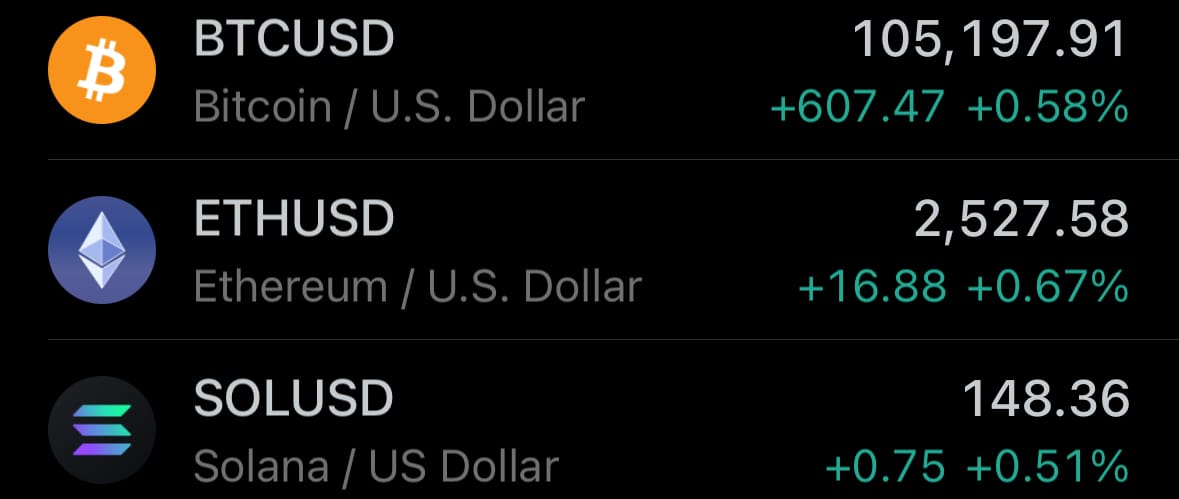
Geopolitics & Military Activity:
- Over the past 48 hours, Iran and Israel have continued reciprocal airstrikes and missile attacks, heightening regional tensions. On June 17, 2025, Iran launched multiple ballistic missiles toward Israel, some of which were intercepted. Concurrently, Israel conducted airstrikes on Tehran, targeting a missile factory and southern areas, and strikes on Tabriz, claiming to have killed Iran’s new chief of staff, Gen. Ali Shadmani, though Iran has not verified this.
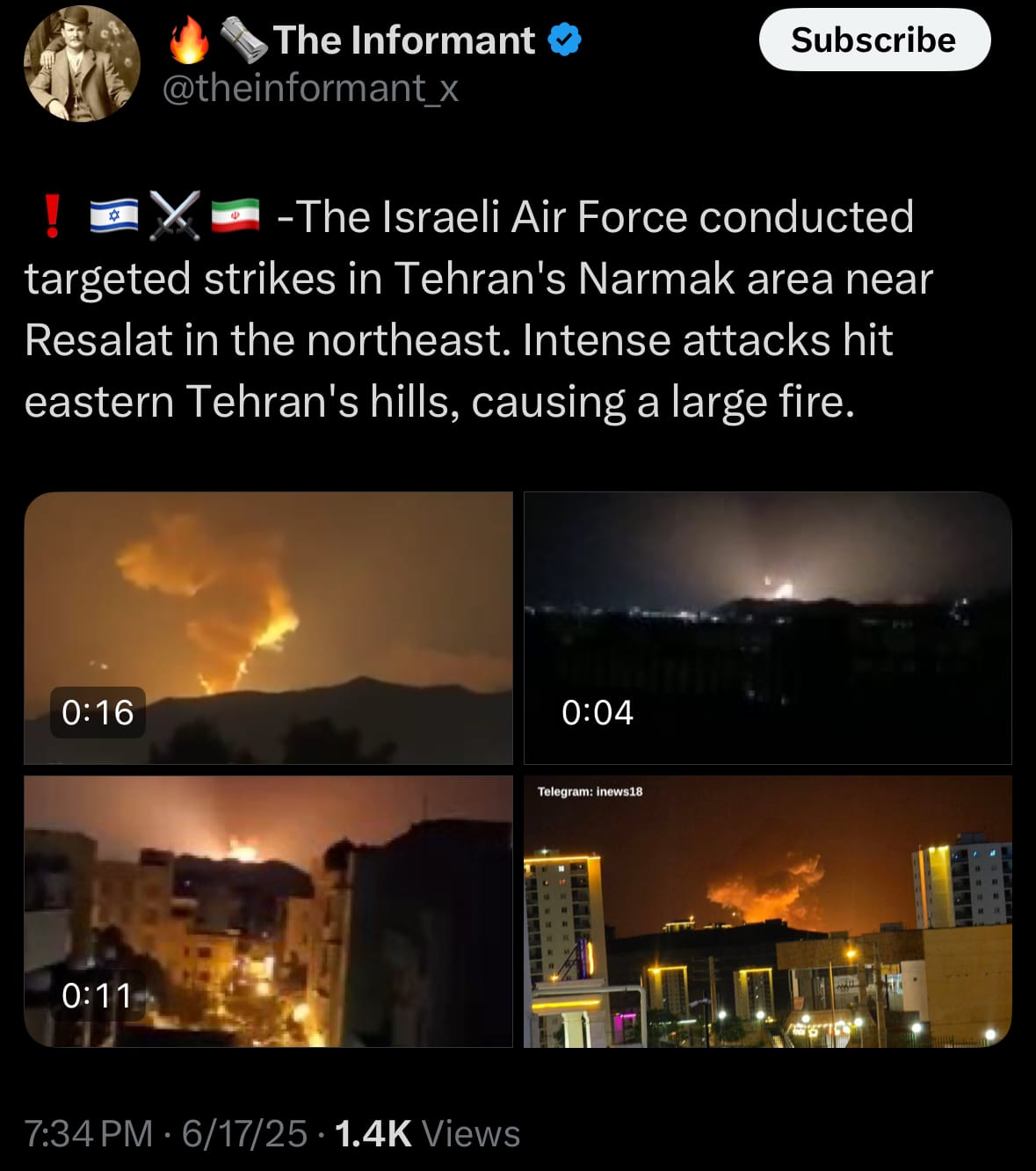
- Israel also struck over 120 Iranian missile sites, Quds Force command centers, and parts of the Natanz nuclear facility, while Iran targeted Israeli air bases and cities including Tel Aviv, Haifa, and Jerusalem, with fires reported in Petah Tikva. U.S. President Trump called for Iran’s “unconditional surrender,” stating knowledge of Supreme Leader Khamenei’s location for a potential assassination. The targeted locations reflect strategic objectives within a long-standing regional rivalry.
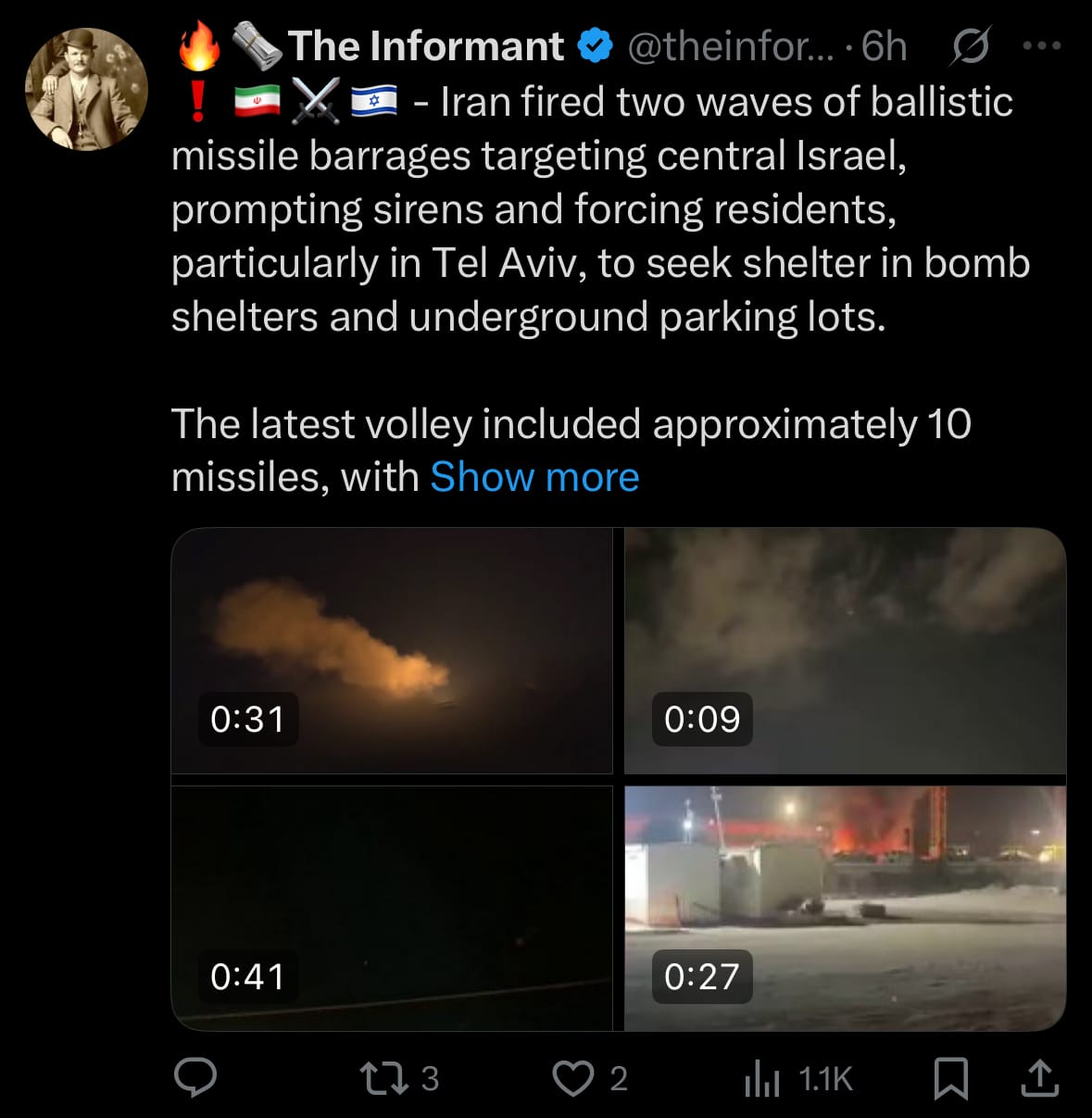
Environment & Weather:
- Yesterday, June 17, 2025, at 5:35 p.m. local time, Mount Lewotobi Laki-laki, a 1,584-meter stratovolcano on Flores Island in Indonesia’s East Nusa Tenggara province, erupted, sending a grey ash cloud about 10,000 meters above its summit, or roughly 11,584 meters above sea level, according to Indonesia’s Geology Agency. The eruption, reported by Volcano Observation Post Officer Yohanes Kolli Sorywutun, led authorities to issue the highest alert level and enforce a 7-kilometer exclusion zone around the crater. The ash cloud disrupted air travel, causing airlines like Air New Zealand, Jetstar, and Virgin Australia to cancel flights, particularly to Bali, though no immediate injuries or deaths were reported. This event followed over 50 smaller eruptions in the previous two weeks, indicating sustained volcanic activity.
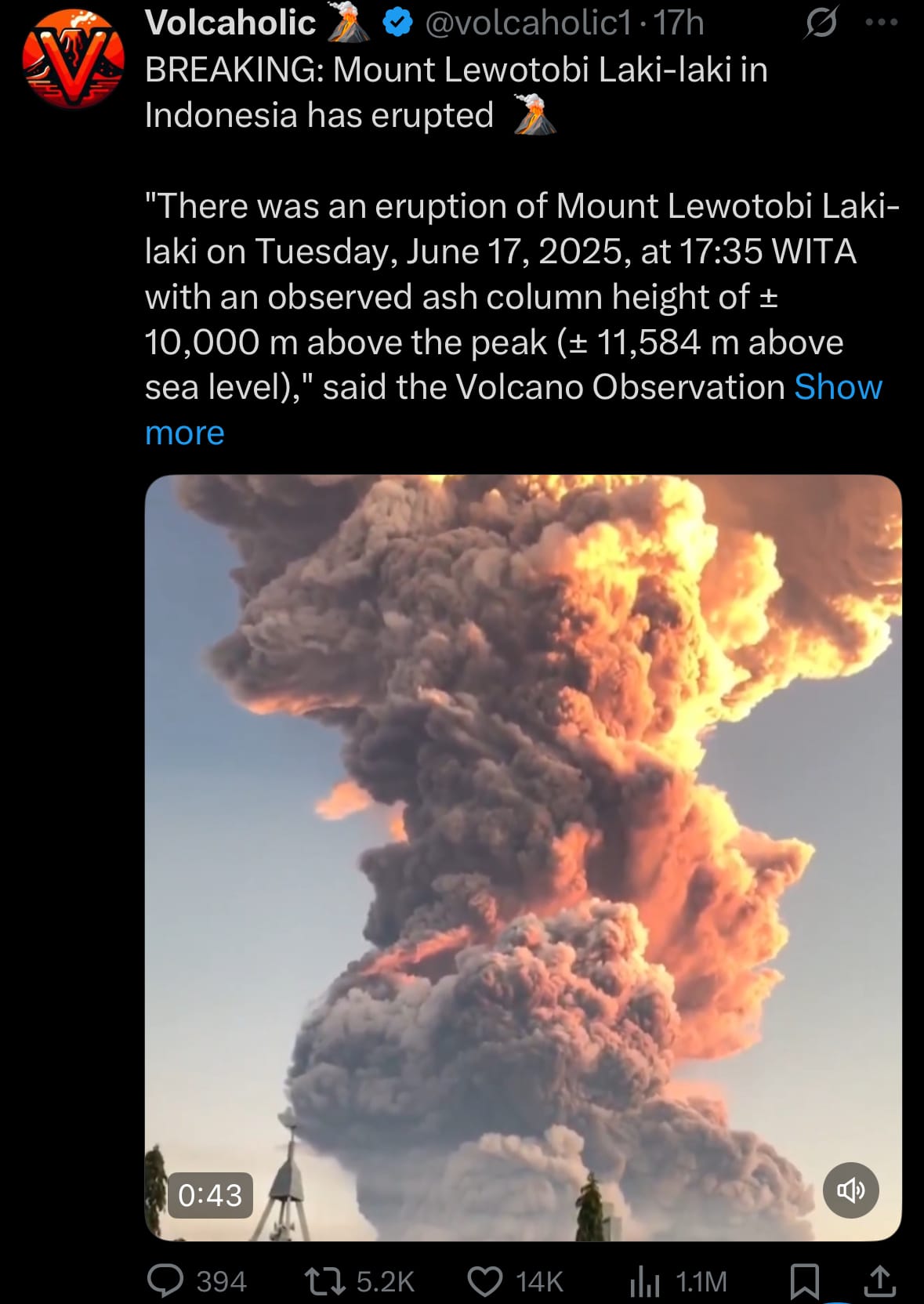
- Mount Lewotobi Laki-laki, part of Indonesia’s “Ring of Fire,” has shown significant recent activity, including a deadly eruption in November 2024 that killed nine, injured many, displaced over 10,000, and caused earthquakes, and another in May 2025 that sent ash 9 kilometers into the sky. Indonesia’s Center for Volcanology and Geological Hazard Mitigation (PVMBG) oversees monitoring and response, organizing evacuations of nearby villages like Klatanlo, where volcanic rocks have damaged homes, and setting up shelters for thousands.
Science & Technology:
- On June 16, 2025, OpenAI, the creator of the widely used AI chatbot ChatGPT, secured a $200 million, one-year contract with the U.S. Department of Defense (DoD) to develop prototype AI systems for national security purposes. Managed by the DoD’s Chief Digital and Artificial Intelligence Office, the project focuses on applying OpenAI’s generative AI expertise to areas like cybersecurity, logistics, battlefield decision-making, and administrative support for military personnel. The work, primarily based in and around Washington, D.C., is set to conclude by July 2026.
- Established in 2015 by founders including Sam Altman and Elon Musk, OpenAI has traditionally concentrated on civilian AI advancements, prioritizing safe and transparent technology for broad societal benefit. Until recently, its defense-related involvement was limited to dual-use technologies, such as natural language processing with potential intelligence applications. In 2024, OpenAI launched “OpenAI for Government,” targeting public sector needs like healthcare and cybersecurity, which laid the groundwork for the DoD contract. This shift reflects a strategic response to commercial opportunities and national security priorities. The contract underscores OpenAI’s evolving role in balancing ethical commitments with growing governmental partnerships.
Statistic:
- Largest public tech companies by market capitalization:
- 🇺🇸 Microsoft: $3.561T
- 🇺🇸 NVIDIA: $3.528T
- 🇺🇸 Apple: $2.963T
- 🇺🇸 Amazon: $2.294T
- 🇺🇸 Alphabet (Google): $2.151T
- 🇺🇸 Meta Platforms: $1.765T
- 🇺🇸 Broadcom: $1.185T
- 🇹🇼 TSMC: $1.109T
- 🇺🇸 Tesla: $1.060T
- 🇺🇸 Oracle: $591.97B
- 🇨🇳 Tencent: $591.81B
- 🇺🇸 Netflix: $521.47B
- 🇩🇪 SAP: $344.70B
- 🇺🇸 Palantir: $333.71B
- 🇳🇱 ASML: $303.10B
- 🇰🇷 Samsung: $284.87B
- 🇨🇳 Alibaba: $274.36B
- 🇺🇸 IBM: $263.06B
- 🇺🇸 Cisco: $259.41B
- 🇺🇸 Salesforce: $252.26B
- 🇺🇸 Intuit: $214.25B
- 🇺🇸 ServiceNow: $208.21B
- 🇺🇸 AMD: $206.07B
- 🇺🇸 Texas Instruments: $180.98B
- 🇨🇳 Xiaomi: $178.37B
History:
- In 1869, Henry John Heinz founded the H.J. Heinz Company in Sharpsburg, Pennsylvania, starting with homemade horseradish sauce sold in clear jars to highlight its purity. After an early bankruptcy in 1875, Heinz relaunched in 1876, introducing ketchup—then called “catsup”—made from ripe tomatoes, vinegar, and spices, which became the company’s flagship product. His emphasis on quality, transparency, and mass production transformed the food industry, and by the late 19th century, the “57 Varieties” slogan, though a marketing tactic, solidified Heinz’s brand. The company expanded globally, pioneering bottled condiments and canned goods, and by the 20th century, Heinz ketchup dominated the U.S. market, later adopting the iconic plastic squeeze bottle in 1983. Today, Heinz holds over 50% of the U.S. ketchup market, a testament to its enduring focus on quality and innovation.
- In 2015, Heinz merged with Kraft Foods to form Kraft Heinz, creating one of the world’s largest food companies with a diverse portfolio, including beverages like Crystal Light, Kool-Aid, and dessert mixes like Jell-O, alongside its core ketchup. In June 2025, Kraft Heinz announced it would eliminate all FD&C artificial dyes from its U.S. products by the end of 2027, aligning with FDA and HHS goals to phase out synthetic food coloring due to health concerns. This policy, impacting about 10% of its U.S. offerings, primarily affects beverages and dessert mixes, while Heinz ketchup, free of artificial dyes, remains unchanged. Building on earlier efforts like removing artificial colors from macaroni and cheese in 2016, Kraft Heinz plans to use plant-based alternatives or reformulate products, becoming the first major food company to fully commit to this shift in response to consumer demand for natural ingredients.
Image of the day:

Thanks for reading!
Earth is complicated, we make it simple.
Click image to view the Earth Intelligence System:
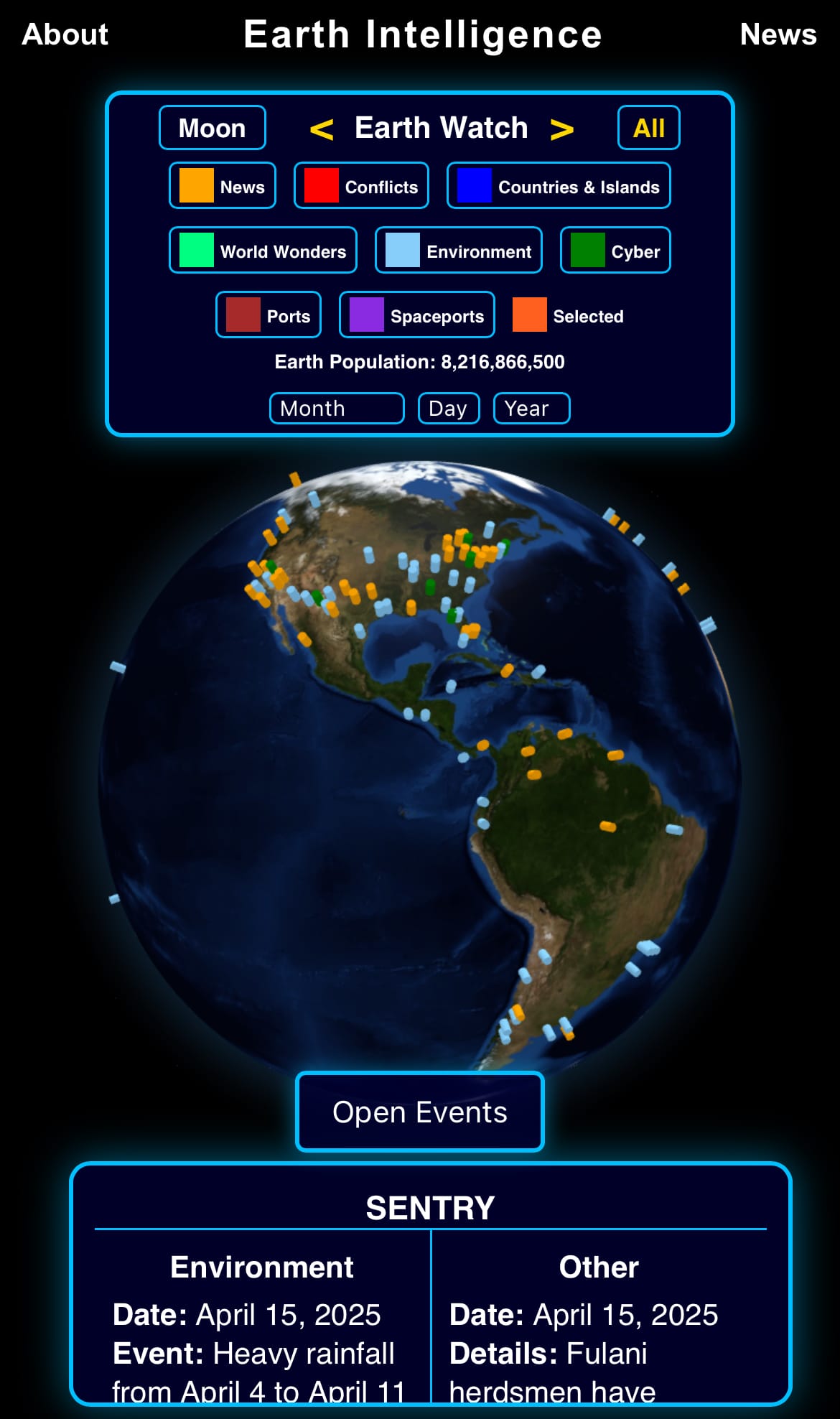


Support/Suggestions Email:
earthintelligence@earthintel.news




